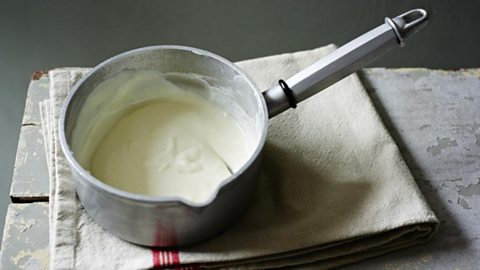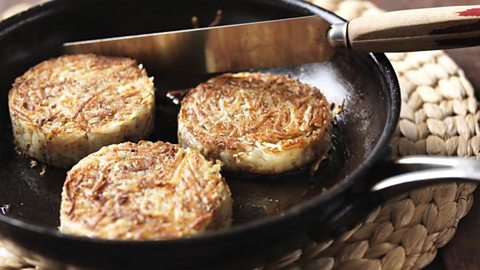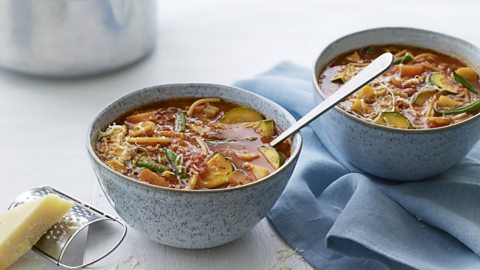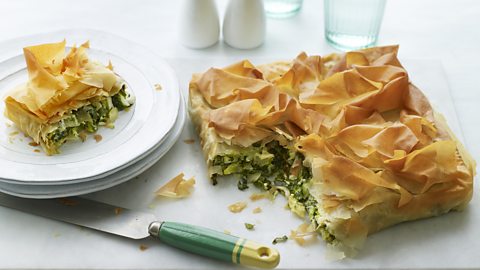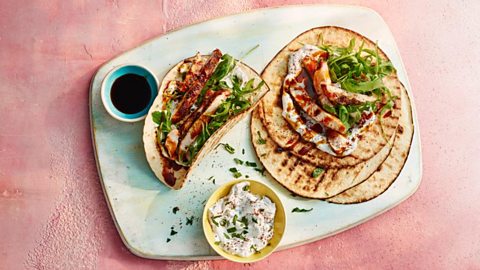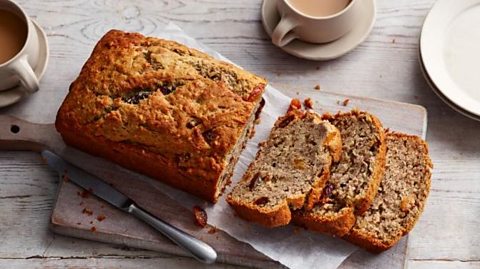How to save £60 a month on your food shop
The average UK family household spends about £60 a month on food that is thrown away, according to food waste campaign group WRAP – that's more than £700 a year. As the cost of food rises and inflation squeezes the household budget, no one can afford to be throwing money away on wasted food.
Not only is there a vital cost to save, food waste generates greenhouse gases such as carbon dioxide and methane and increases plastic waste too. If we stopped throwing away food in the UK, it would have the same impact on our carbon footprint as taking one in five cars off the road.
We've put together a quick guide to using the UK's most wasted foods. Are you prone to ditching sprouted potatoes, black bananas or pouring away milk that's gone off? With hundreds of recipes to help you use everything you buy, those days are over.
Bread – 20 million slices are wasted every day
Bread can do two things when past its prime: go stale or go mouldy. Stale bread is fine for making loads of delicious recipes, most simply a quick eggy bread or its classy cousin French toast.
Blend stale bread (including crusts) for breadcrumbs. Store a bag in the freezer to dip into for fish cakes, stuffing or potato croquettes. Toast stale bread, drizzled in oil, in the oven to make tasty croûtons to top soup or salads. Treat wraps and pittas in the same way to make excellent healthy crisps and pitta chips.
Puddings using stale bread are classic British favourites: queen of puddings, summer pudding and bread pudding.
The Food Standards Agency (FSA) recommends against eating mouldy bread. Watch our video for ideas on how to store bread to stave off mould and store your bread correctly.
Quick tips for storing bread to last longer, how to revive stale bread or transform it in delicious recipes.
Milk – 3.1 million glasses wasted every day
If milk smells sour, don’t drink it. It is sometimes drinkable after its use-by date, but it can also go off before the date if it isn't stored properly. If it has gone sour, you can use it in baking as the heat of the oven will kill off potential pathogens. One substitue for buttermilk is to artificially "sour" milk by adding vinegar or lemon juice. No need if you have some milk past its best: use it in buttermilk scones, soda bread or cobbler topping.
If you're not getting through the milk in your fridge before it goes off, you can always freeze a bottle of milk. Or check the temperature of your fridge to ensure it's keeping food cold enough.
Vegetables
Potatoes – 4.4 million wasted every day
Potatoes are the most commonly thrown away food in the UK. If they've gone soft, mushy, wrinkly, cracked, green or mouldy, don't eat them. But if they've just started to sprout little shoots, no worries, just chop them off and use them in any of our delicous potato recipes. If you have leftover mash, you can use it in bubble and squeak, fishcakes or potato pancakes.
Root vegetables
Almost 100 thousand tonnes of carrots are thrown away every year in the UK. If you find you're throwing root veggies away, try making a batch of vegetable soup for lunches. A tray of roast root veg eats well cold and goes in sandwiches, salads and grain bowls. Even the trimmings of your vegetables can be frozen in a bag to make free veg stock. Top tip for reviving carrots: put them in a glass of water in the fridge until they are less shrivelled; they’re not perfect but they’ll be usable again.
Fridge vegetables
If you’ve got a fridge drawer full of tired veg, fear not. Broccoli, peppers and mushrooms are high on the list of wasted veg, but there are lots of ways to use up odds and ends in our fridge-raid recipes, from saag aloo to savoury pancakes. Don't use vegetables if they become slimy or mouldy.
Fresh herbs and spices
Chopped herbs don’t last long and if you forget to use them they will become slimy, yellow and unusable. You can freeze herbs, chillies and ginger and then grate, chop or crumble them into your cooking straight from frozen.
Meat, including 2.2m slices of ham
Chicken, bacon and ham are the most popular meats in the UK and they're also the most wasted. This is where you can really save money on these pricey products by using them to their fullest. If you don't have a definite day you know you'll cook a pack of meat, pop it into the freezer. Check our list of how long foods keep in the freezer to know how much time you've bought yourself.
Alternatively, cook that packet of meat straight away and use the leftover cooked meat in lunches over the next three days. Slice cooked chicken into thin strips for quick leftover chicken fajitas or soup or curry – just be sure to heat it right through. Cooked bacon or ham can be added to pea soup, a frittata or pasta.
Store cooked meat in sealed boxes in the fridge for 3–4 days, but make sure you refrigerate it immediately and store it away from raw meat to avoid cross-contamination.
86,000 lettuces and 1.2m tomatoes thrown away every day
Bagged salad is particularly easy to ignore until it turns to soup, and not the good kind. If the leaves are a little limp you can soak them in cold water for 5-10 minutes and they should crisp up again. Buy sturdier lettuce such as Little Gem or Cos that will last longer. Rocket tends to store well, too and is a key part of our any salad leaf pesto.
Tomatoes
Tomatoes can easily go mushy and mouldy. Don’t eat a mouldy tomato, but tomatoes that are a little wrinkly are fine to cook. Roast a tray of cherry tomatoes for a tomato risotto or cherry tomato sauce. If you only have a few, add them to a tin of tomatoes in any dish that calls for it.
Quick tips for storing your salad veg to last longer, plus ideas for using it up.
Fruit, including 920,000 bananas wasted every day
British families throw away £80 million worth of bananas every year. Surprisingly, more than 1 in 10 customers say they throw away bananas if there's any green on the skin. Store bananas at room temperature rather than in the fridge. If your bananas are a little soft and brown, peel, slice and freeze them to use in smoothie recipes or instant banana ice-cream. If you're not completely over it, there's always banana bread!
Apples – 800,000 apples wasted per day
Never eat a mouldy apple, but a wrinkly apple still makes a delicious apple crumble or apple cake. If you don't need the excuse to eat more puddings, stewed apple is delicious for breakfast with yoghurt or porridge.
Citrus fruits – 720,000 oranges wasted each day
The acid in citrus fruit usually prevents the growth of harmful bacteria, but it won’t stop mould. Throw citrus fruit away if it has started to go mouldy. You can slice and freeze lemons, oranges and limes, then pop straight into drinks. (Frozen grapes, blueberries and strawberries also make great ice-cubes.) Juice oranges for smoothies, slice them into salads and just eat more fruit as a snack or dessert.
Storing fruit, other than bananas, in the fridge will help it last longer. If you don't get through fruit fast enough, maybe switch to frozen or tinned fruits that you can eat as you like.
Our top tips
Plan your meals
The number one way to reduce waste is to know what you need (and what you don't) before you buy it. Making a list of recipes you'll cook each day also saves your tired brain one more job at the end of the day.
Avoid impulse purchases
We're as likely as the next person to make a purchase in the "whoopsie aisle". And multi-buys are so tempting when you think of the savings, but it's no saving if you throw it away. Stick to the plan.
Cook it for convenience
Cooked food, ready to eat from the fridge, is more convenient and easy to use than raw. Batch cooking meat and vegetables is like a gift to future you. It doesn't have to be a complicated recipe, just giving food a simple roasting will make it ten times more delicious.
Do you already have it?
Check your fridge and cupboards while making a shopping list - even if it's taking a quick picture of your fridge to take with you. If you already have an ingredient (or the constituent parts), you don't need to buy more.
Food Standards Agency advice
The FSA advises people "not to eat food that is obviously rotten or containing mould due to potential risks from the mould. This advice is especially important for people in vulnerable groups, which includes children, the elderly, pregnant women and those who have a weakened immune system. It is possible that removing the mould and a significant amount of the surrounding product could remove any unseen toxins that are present, but there is no guarantee that doing so would remove them all."
Last reviewed January 2022
